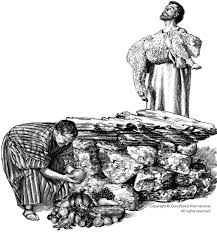What’s best life for me?
In this series, we’ve seen what best life looks like for a variety of people. It is evident, at this point, that best life looks differently to others based on who they are and what is important to them.
For some, best life means the ability to “give back” to the world. For others it’s about being authentic and true to their beliefs. And to many, it is simply a whimsical phrase similar to that used by the meerkat, Timon in Lion King: “Hakuna Matata” or “no worries”.
We’ve examined the views of others in hopes that it will assist us as we attempt to formulate what best life looks like for each of us. Now it’s time to begin forming our own definition.
What are we looking for?
I think we can all agree that best life is purely subjective. Because of that, it is difficult and would be presumptuous for me to define best life for individuals. Instead, I’d like to offer a way to begin to capture the essence of best life.
The essence of best life could be summarized using two perspectives: (1) what are people’s basic needs, and (2) what are the things people want in life but can’t seem to get? In answering these questions, we might begin to decide what our best life might look like.
What do we need?
What are people’s basic needs? Maslow’s Hierarchy of Needs is used to study how humans are motivated by defining their basic needs. Maslow used the terms “physiological”, “safety”, “belonging and love”, “social needs” or “esteem”, and “self-actualization” to describe the pattern through which human motivations generally move.
Perhaps best life includes those things that address people’s needs. Best life for a homeless person would be found in the physiological category. Food security, clean water, and shelter would be as good as it gets. For the person experiencing isolation due to any number of factors, being accepted and belonging is the best life they could imagine.
What do we want?
What are the things people want in life but can’t seem to get? The Huffington Post asked that question and the answer resulted in ten items. The key question this survey probed was this: “If you could say in one word what you want more of in life, what would that be?”
- Happiness
- Money
- Freedom
- Peace
- Joy
- Balance
- Fulfillment
- Confidence
- Stability
- Passion
In review of this list, it is surprising to note that of the ten items, there is only one that is tangible. The remaining nine are intangible. Something intangible can’t be touched physically, but most of the time it is understandable or even felt in the heart. In accounting, an intangible asset is something that provides long-term benefit.
It is important to know that this survey was completed prior to the COVID pandemic. However, I’m sure the answers are still very relevant today. Please note what people see as the “biggest challenge” to getting what they want. Perhaps these “unmet needs” could be added to the list that may represent best life.
Basic needs or intangible wants? Which most accurately represents “best life”? Especially for me. To this point, our examination has considered the world’s view of best life. It’s now time to consider what God has to say.











